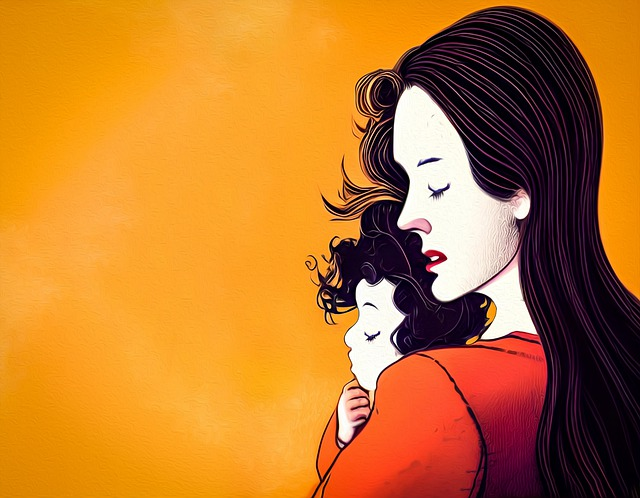Postpartum Depression

introduction
If there is one thing that you need to learn and understand today, it is the fact that previous pregnancy is not all about happiness and excitement. Whether you believe it or not, it can also be coupled with a history of depression. One of the most famous pregnancy-related physical and emotional issues is post-partum depression. Not everyone may know this, but the number of women who experience postpartum depression or baby blues is increasing.
According to Joel L. Young, MD, “Between 11%-20% of women develop perinatal depression after giving birth […]. As many as 80% of women also experience a low-grade postpartum depression shortly after childbirth.”
There will be days when the mother needs to stay up late just to babysit or to call in sick for work because no one has to take good care of the new baby.
All these sudden changes in routine can be contributory risk factors in developing after-birth sadness. Thinking about a child’s birth brings a woman’s risk of postpartum depression or peripartum depression. The idea can make them feel sad during their mental health condition.
To prevent post-partum, you need to take care of your mental health and get support or treatment from professionals.
PRIMIPARAS GET postpartum depression
Information from a diagnostic and statistical manual enlisted that untreated postpartum depression is a treatable psychological disorder. Not that it may often show signs and symptoms of bipolar disorder, but the condition is different from a chronic depressive disorder. However, it is important to reach out to your primary care provider and ask for help. Do not think that having the condition is your fault. And having postpartum psychosis does not make you a bad parent.
Postpartum depression, according to National Institute Psychology specialists, is also linked to anxiety and panic attacks since most moms, especially first-timers, want everything to be perfect in their family members’ lives. If you are one of the amazing women who are going through a difficult time after pregnancy, the best thing to pull off is to take a break and remind yourself that you are not alone. Fortunately, there are many efficient ways to deal with it.
WORDS FROM THE EXPERTS Regarding postpartum depression
According to a national suicide prevention lifeline psych expert from BetterHelp, one of the effective methods is to try after-birth counseling online.

GETTING HELP ONLINE FOR POSTNATAL BLUES
POSTPARTUM DEPRESSION TIP #1
ASK FOR RECOMMENDATIONS
Do you know someone who has experienced untreated postpartum depression signs? Do you feel confident in confiding in this person? The best way to find the perfect online healthcare provider for you is to ask for some recommendations and symptoms of depression screening questionnaire from close friends. It is highly recommended to inquire about the mental health options so that you would be able to properly assess each mental health provider.
CHILDBIRTH SADNESS TIP #2
Enjoy The Anonymity OF ONLINE COUNSELING
The American Psychiatric Association experts believe that the best thing about online counseling to treat major depression or other severe mood swings is that it has some sense of anonymity. For this reason, it will be easier on your part to open up to the counselor about your postpartum depression facts. Do not hesitate to share everything that you are feeling and thinking. Avoid holding back depressed mood disorders or other symptoms or information about personal or family history because if you do, the counselor or the health care providers will have difficulty helping you to treat postpartum depression symptoms. Be open about what you feel and be amazed by how the therapy session can go further.
AFTER-BIRTH DEPRESSION TIP #3
SET A SCHEDULE AHEAD OF TIME– ONE THAT’S MOST CONVENIENT FOR YOU

Another significant advantage of online counseling or talk therapy for mental disorders and women’s health is that it allows people to set an early postpartum checkup easily. The reason behind this is that the sessions are done in a remote environment. There is no need to show up in the actual office of the health care professional. “With enough on their brimming plates, the last thing clients need to worry about is one more place to be. And for that matter, one extra cost if parking tickets or accidents are involved,” said Goali Saedi Bocci, Ph.D.
All you have to do is choose the perfect date and time when you want to discuss your health problems. After that, the next thing you need to concern yourself with is showing up during the schedule. As much as possible, avoid missing online appointments.
Another important tip to get treated
POST-Birth DEPRESSION TIP #4
Taking care of yourself is one of the best ways to relieve postpartum depression. A simple lifestyle can improve your health and postpartum depression and help you to feel more like yourself again. It can aid your trouble sleeping issues, crying spells, loss of control, pregnancy complications, and other health problems. Healthy eating alone won’t cure postpartum depression. Still, getting into the habit of eating nutritious foods can help you feel better from postpartum depression and give your body the nutrients you need. But in case struggling with eating difficulties, seek treatment immediately.

THOUGHTS ON MANAGING POSTPARTUM DEPRESSION ONLINE
“Most pregnant women (and their companions) have heard of postpartum depression and know that the time after a child is born may be particularly difficult emotionally for the mother. What is less commonly known is that pregnancy itself is a time of increased risk for depression,” Jutta Joormann, Ph.D., wrote. However, what you are going through right now with the condition is only temporary. Sometimes, all it takes is to try online counseling and sometimes join support groups to solve your postpartum depression.
Online counseling can do a lot of wonders for moms with history of depression or mental health problems. While it is normal for new moms to experience symptoms of postpartum.
If you’re a new mom experiencing postpartum psychosis or baby blues, make sure to reach out to support groups and ask help from family members. Moreover, a health care provider can discuss options for you, especially after giving birth.
But note that despite the condition affecting more women, it is safe to say that men also experience paternal postpartum depression which should be addressed as well. They also need emotional support when feeling confused and feeling depressed.
Frequently Asked Questions
How long do you suffer from postpartum?
What are postpartum warning signs?
What are the three stages of postpartum?
Is postpartum considered a mental illness?
How do I cope with postpartum?
How long do after-birth hormones last?
How do you take care of yourself after childbirth?
How does your body change after childbirth?
Why is afterbirth care important?
What does PPD look like?
What are the main causes of ppd?
What happens when a woman has PPD?
What should you not do after childbirth?
What puts a woman at higher risk for PPD?
What are two possible outcomes of postpartum unhappiness for the baby?




